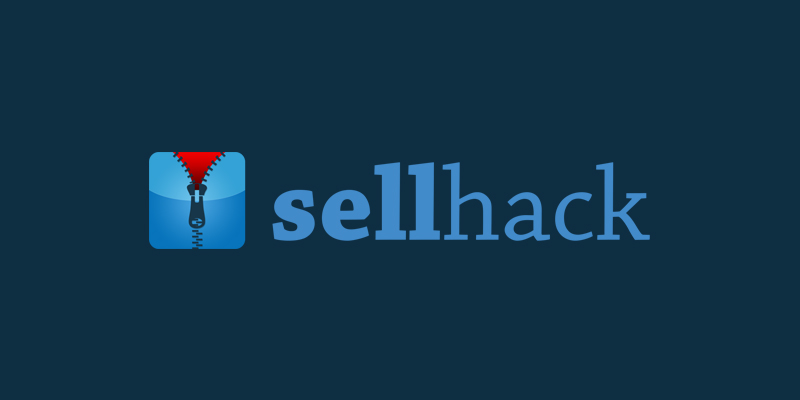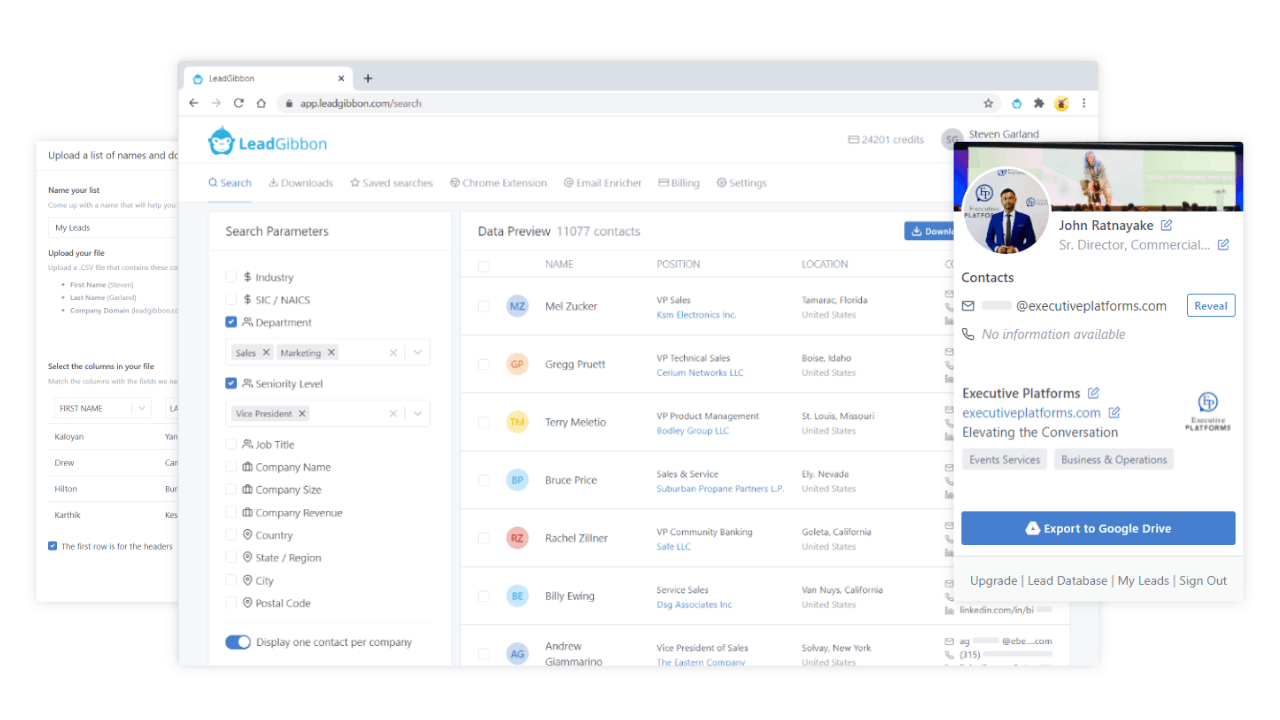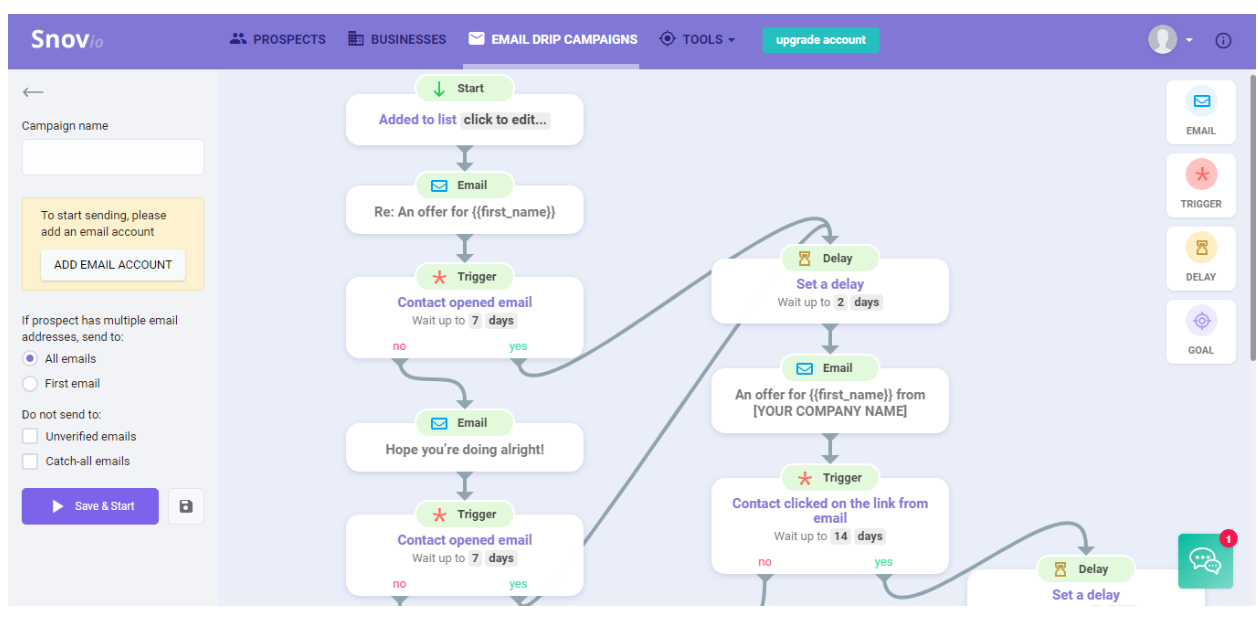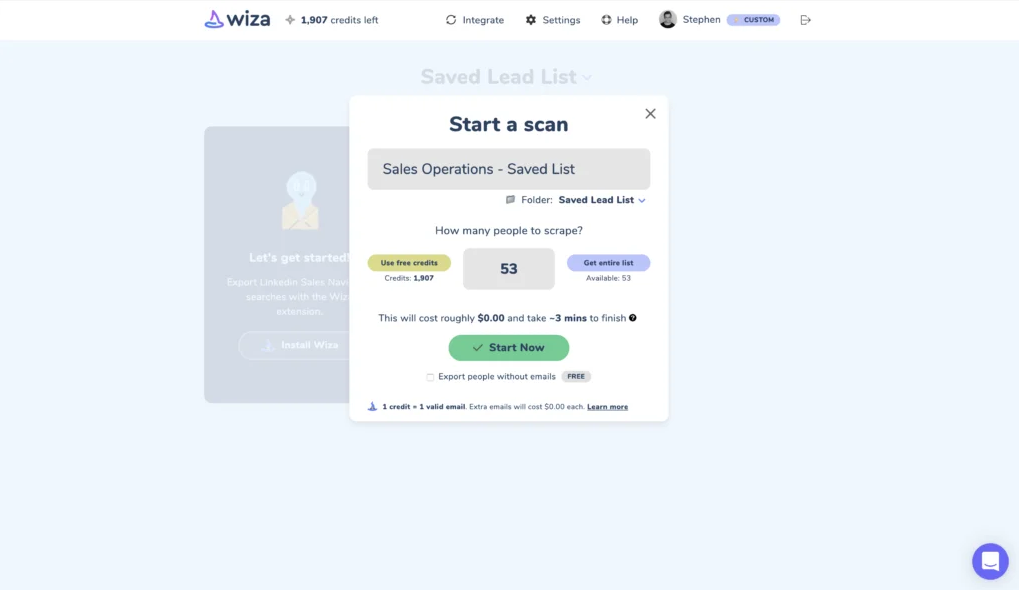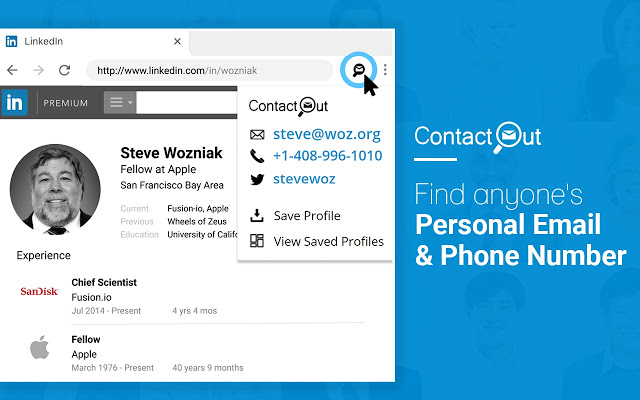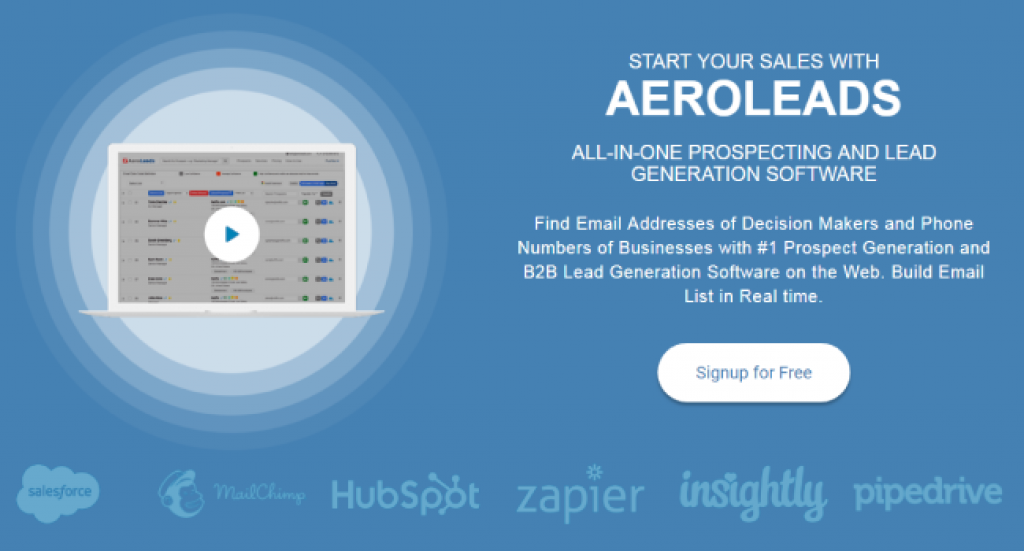Email remains the most powerful communication and outreach tool in business, but that doesn’t make it the easiest to use effectively. Imagine you’re a sales or marketing professional who has crafted the perfect pitch for a new lead but you’re stuck without one crucial detail: their verified email address. You’ve searched contact forms, LinkedIn, and social media still nothing. Now what?
This is where email finder tools become essential.
What Are Email Finder Tools?
Email finder tools are specialized software or online services designed to locate, verify, and retrieve email addresses. These tools use a mix of techniques such as web scraping, data mining, and pattern recognition to deliver valid, often verified, email contacts based on partial inputs like name, domain, or company.
They are widely used in:
-
B2B lead generation
-
Sales and outreach campaigns
-
Recruiting
-
Networking and partnership development
Pros and Cons of Email Finder Tools
Advantages:
-
Time-Saving: Automates email discovery in minutes.
-
Lead Generation: Identify and build targeted prospect lists.
-
Verified Data: Most tools offer built-in verification to reduce bounce rates.
-
Outreach Efficiency: Streamlines networking and cold-email campaigns.
-
CRM Integration: Syncs seamlessly with sales tools and email platforms.
-
Competitive Edge: Gives you early access to decision-makers’ contact info.
Potential Drawbacks:
-
Data Privacy Concerns: Scraping without consent may raise ethical issues.
-
Inaccuracy: Not all tools guarantee 100% correct addresses.
-
Legal Compliance Risks: Ensure your usage aligns with data protection regulations.
-
Spam Risk: Misuse can lead to blacklisting or reduced sender reputation.
-
Low Personalization: Over-reliance can lead to impersonal, ineffective outreach.
Key Features to Look For
When selecting an email finder tool, prioritize these features:
-
Search by Name, Company, or Domain
-
Bulk Email Lookup
-
Built-in Email Verification
-
Chrome Extensions
-
CRM & API Integrations
-
LinkedIn Data Extraction
-
Confidence Scoring for Deliverability
The 10 Best Personal Email Finder Tools Of 2025:
We compared 10 email finder tools in 2025 to help you choose the best platform.
1. FindEmails.com:
The bulk email finder FindEmails.com has the lowest cost per email address on this list, which benefits organizations looking to develop sizable contact lists without exceeding budget. For instance, its lowest cost per lead is less than three cents, its middle plan’s cost is less than two cents, and its highest cost per lead is less than a penny.
This does not imply that data accuracy is sacrificed, though. FindEmails retrieves your emails and confirms them using mail server tests. You may also manually verify using its email verification tool. Additionally, it gives each of your contacts a confidence score to assist you in avoiding high bounce rates. Through Zapier connectors, you can transmit the data to external customer relationship management (CRM) applications or export your lists anytime.
FindEmails.com doesn’t lock sophisticated capabilities behind higher levels as most email discovery apps do. Only the quantity of credits offered distinguishes different packages. Its programs are simple to follow, and if you discover that you require more credits, you can easily switch to the next plan.
2. SellHack:
With plans ranging from $3 to $60 per month (on an annual plan), with an average cost of three cents per credit, SellHack is one of the most cost-effective tools on this list. Using the native Prospect List Builder or the Chrome email finder addon, the software makes finding email addresses simple. An internal CRM tool, this one locates and validates email addresses before building your contact list on the same platform.
This does not imply that the quality of your data is sacrificed, though, since SellHack’s 12-step real-time email verification procedure ensures that you produce email leads of the highest caliber. Finally, you can use the platform’s Replyify interface to send automated email campaigns from within it or use Zapier to export your data to an Excel spreadsheet or other program.
3. Skrapp:
Skrapp operates uniquely. It employs algorithms to predict a valid email’s appearance rather than use a database or publicly available data. It examines typical email trends before making an email-specific suggestion. This works well if you’re willing to try a couple of different approaches.
Being a Chrome extension, it’s simple to install, and you can start using it right away. When you’re prepared to begin, you can search for individual emails in bulk or all emails associated with a particular domain. The information can then be easily downloaded as an Excel or CSV file.
4. Seamless AI:
The greatest program for simultaneously locating email addresses and phone numbers is Seamless AI, making it a useful resource for companies focused on sales. A real-time search engine that keeps every contact current and an automatic pipeline generator that spares you the hassle of creating prospect lists are among the sales tools it also provides.
Enter the firms and positions of the prospects you aim for in the search field to use the tool. The software automatically creates a list of contacts with their contact information who meet your requirements. It also provides a Chrome extension that enables you to identify contacts on any website you visit and import them into your chosen CRM. Finally, its artificial intelligence (AI) copywriting and data on buyer intent are other remarkable features.
Despite offering a free plan with up to 50 credits, Seamless AI’s higher plans are still more expensive than the other companies on our list. While its base plan only delivers these features with 250 credits, its free plan includes the following:
- A real-time search engine.
- Enterprise-level security.
- Connections with simple sales CRMs.
Seamless AI provides bespoke credits, infinite integrations, and data enrichment at unique pricing for larger organizations. Because of this, it’s a suitable option for bigger teams with high sales quotas.
5. LeadGibbon:
LeadGibbon is a different Chrome extension that enables you to crawl LinkedIn for email addresses, filter them as you see fit, and then automatically import them into your chosen CRM. Additionally, the addon gives LinkedIn buttons, enabling streamlined, integrated searching. Following the collection of addresses, some are validated automatically, and those that don’t give you the choice to verify them before launching an email campaign.
The source of the email address will be described in a column next to the information, allowing you to judge how accurate you think it is.
6. Snov.io:
Snov.io is a one-stop shop for email marketing and sales initiatives. It provides 150 monthly search and verification credits and 100 email recipients as part of its free plan, which is more than most other options, including our top pick. Additionally, it stands out for having functional email automation capabilities like email warmups and drip campaigns.
Additionally, Snov.io incorporates AI into this automation to produce effective email campaigns and help you save more time. It is particularly beneficial for firms that require an all-in-one email tool for sales and marketing. Snov.io can identify and validate your email leads, warm up your email account, and send automated campaigns all from one place.
7. Voila Norbert:
A Chrome plugin that serves as a straightforward, user-friendly email-finding tool. Given the possibility of a team account, this feature is helpful if you work in a team. The fantastic search tools offered by VoilaNorbert include bulk domain searches, looking for emails only using names, and sifting through LinkedIn.
Voila Norbert is different in that it positions itself as more of a virtual assistant that gives you access to prospects’ contact information rather than just an email-finding tool. Verification’s quick, easy, and real-time nature greatly aids deliverability and bounce rates.
8. Wiza:
Wiza is a Chrome addon that only works with LinkedIn. Like LeadGibbon, Wiza adds a new “Get Email” option to your LinkedIn searches. When you click this, the prospect’s email address is made public and added to a database. Paste a LinkedIn search URL into Wiza, let the system run, and you’ll be shown many email addresses if you seek a more significant collection.
Wiza kindly provides the spreadsheet after a search so you can quickly share it with other team members.
9. ContactOut:
Countless email accounts are available to ContactOut. They assert that they have access to one billion addresses. That is a lot. In the West, 75% of business professionals are employed. There is a good possibility that this database contains the email you’re looking for.
The AI technology confirms that an email is accurate and triple-verifies it with a 99% accuracy guarantee. ContactOut can be a fascinating option for individuals looking for an integrated CRM system that enables you to access contacts from a dashboard, organize them into lists, and send emails all in one.
10. AeroLeads:
A prospecting tool called AeroLeads makes locating and organizing contact information simple. It’s affordable, especially if you require extensive information like names, titles, business emails, the name and size of the organization, social media accounts, and business phone numbers. It’s an excellent place to start for small business-to-business (B2B) enterprises that must create sales prospect lists, especially those whose target market includes startups.
You can manually search AeroLeads’ 650+ million databases or upload your prospect lists to check email addresses. Additionally, you can scrape websites like LinkedIn, startup-focused platforms like Crunchbase and AngelList, and recruiting-focused Xing using the Chrome plugin. Additionally, there is a built-in email campaign tool, a Google Sheets addon for fast email verification, and an API for automating the extraction of contact information.
Conclusion
Email finder tools are essential for modern sales, recruiting, and networking efforts. They help streamline contact discovery, improve outreach efficiency, and accelerate lead generation.
However, ethical and legal considerations remain critical. Always use verified tools that prioritize data security and consent. To maximize results:
-
Use email verifiers
-
Personalize your outreach
-
Stay compliant with global data laws
Frequently Asked Questions (FAQs)
Are email finder tools accurate?
Most top-tier tools offer high accuracy, especially those with built-in verification. Still, manual review is always a good practice.
Are email finder tools legal?
Yes if used responsibly. Be sure to comply with GDPR, CAN-SPAM, and local data laws, especially when sourcing or contacting individuals.
Can I use email finder tools for marketing?
Absolutely but ensure your email campaigns are permission-based and compliant with relevant email marketing laws.
Do these tools respect privacy?
Reputable email finder tools gather data from publicly available sources and offer opt-out or verification mechanisms. Always choose platforms that emphasize ethical data use.
Final Thoughts
Choosing the right email finder tool can significantly improve your outreach success. Whether you’re a solopreneur or part of a large sales team, these platforms help you connect with the right people—faster and more efficiently.



